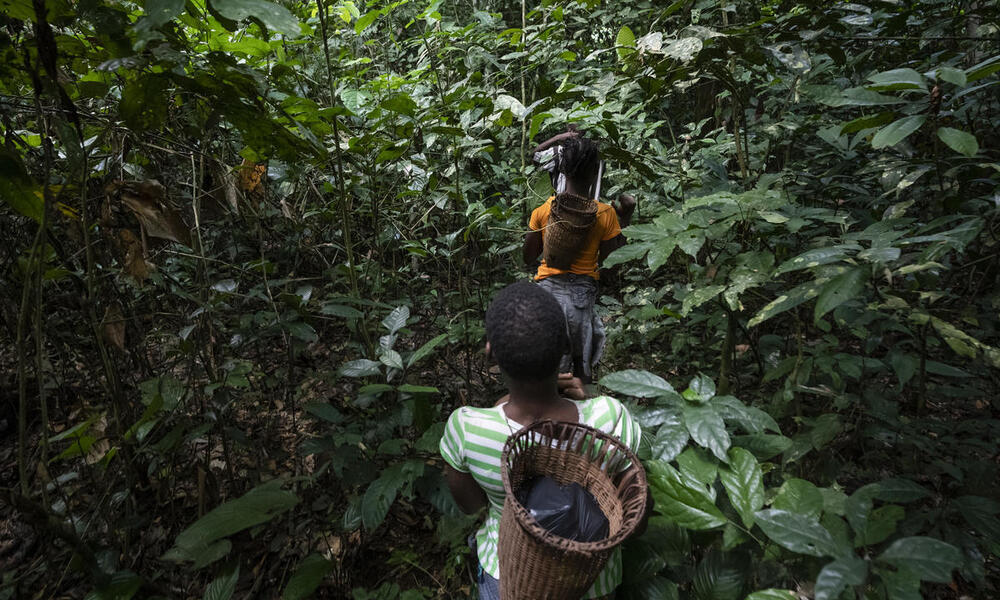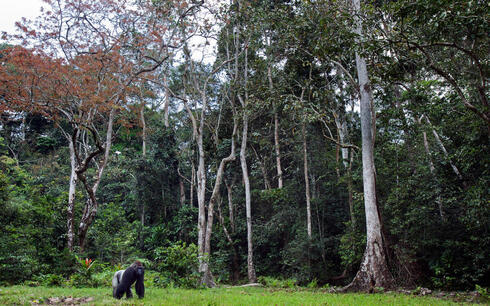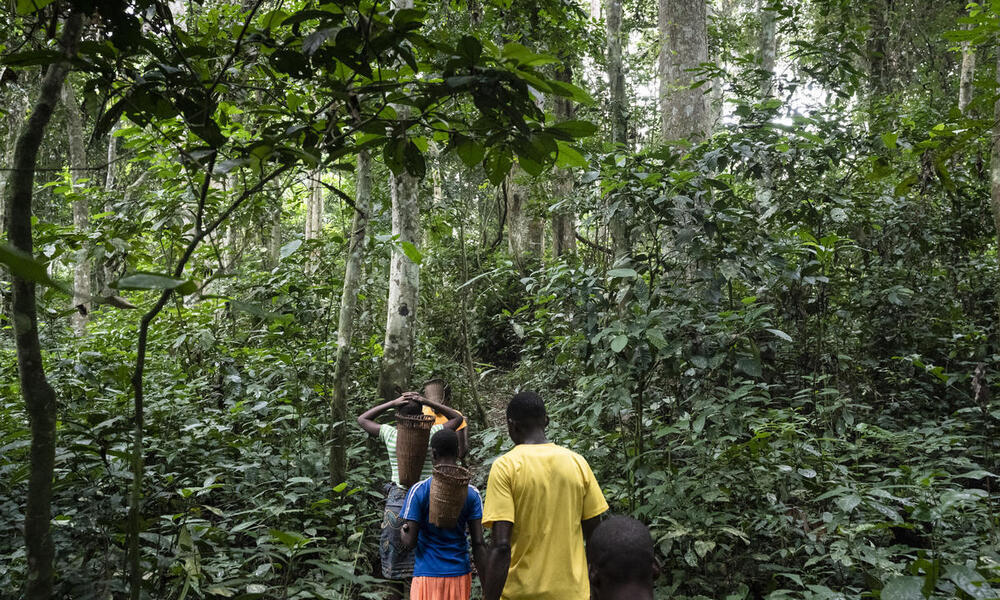When WWF first helped establish Dzanga-Sangha in 1990, it was conceived as a protected area that could provide refuge for wildlife and opportunities to secure better lives for the Ba’Aka. As part of a holistic and inclusive approach to conservation, WWF works with the government, the Ba’Aka people, and other community stakeholders to protect this biodiversity hot spot and to support and improve the livelihoods of the Indigenous peoples and other communities who live there. Together, over the last 30 years, a hospital was built, ecotourism programs cultivated, projects to protect wildlife implemented, and much more. Partnering with the local community in all these initiatives is not only critical for success, it is a key tenant of WWF’s approach to conservation.
The Ba’Aka and COVID-19
When the World Health Organization officially declared the COVID-19 outbreak a pandemic in mid-March, WWF had to immediately pause some field programs and conservation activity to try to mitigate the spread of the virus. Ecotourism came to a screeching halt and some of WWF’s usual community engagement was suspended to protect the local people.
In a country with very limited health infrastructure, transmissible diseases can have catastrophic impacts to Indigenous communities. Isolation is the Ba’Aka’s best defense against the virus. Much of the tribe grouped themselves by family or village and left their more urban communities to return to their hunting camps in the forest to practice their best version of social distancing.
While typical community engagement is on hold, WWF continues to support the Ba’Aka people in this incredibly trying time. In order to limit the tribe’s interaction with others and help them stay healthy as they isolate in the forest, Ba’Aka community representatives were designated as points of contact to meet with a select few WWF staff who provide them with food, health care, and essential supplies. These efforts support over 3,000 people, ensuring they have what they need as they wait out the proverbial storm in their camps.


